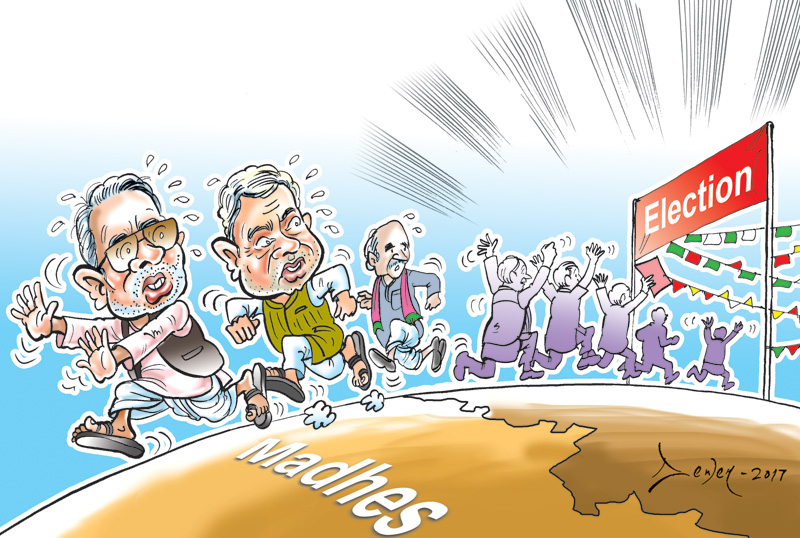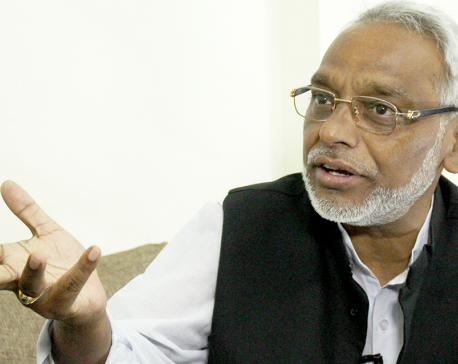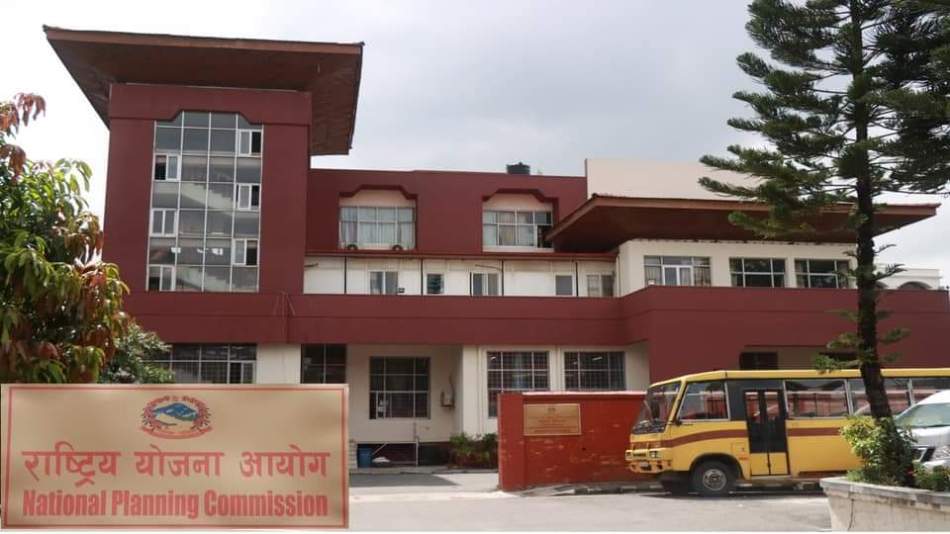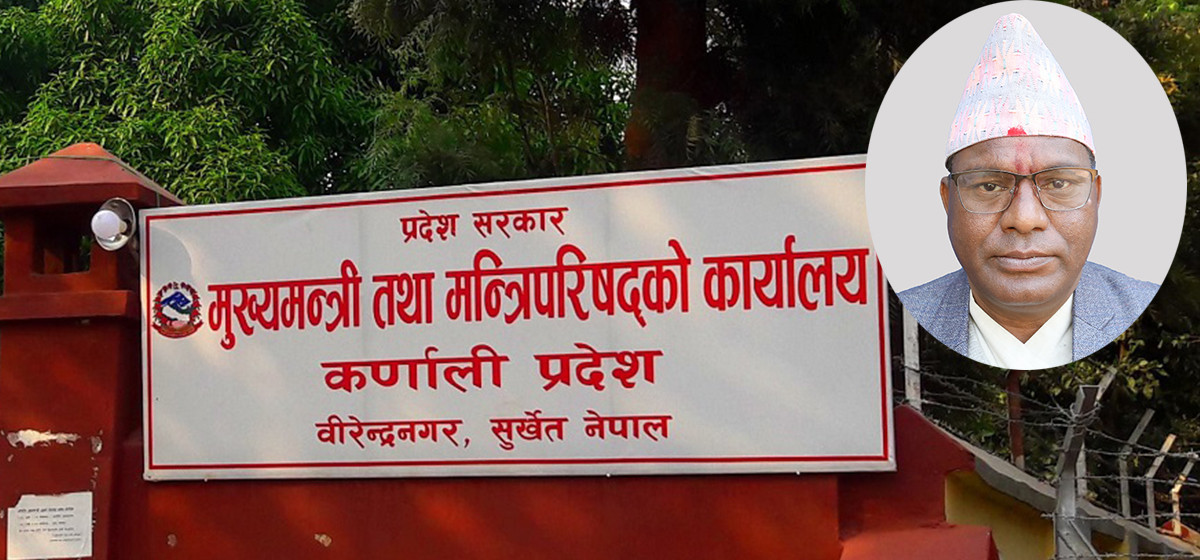
OR

When there are elected local governments in other regions, Madhesis in Province 2 will feel bad about being denied a chance to elect their own
When journalist Ameet Dhakal wrote in April about the possibility of Madhes being led on the dangerous path of Kashmir, many of us cringed at the prospect: If Madhes became Kashmir, what will become of rest of the country? Has Madhes really been pushed that far? Can it afford to be one?
Evidently, Dhakal was warning Madhesi forces as well as government to come to a negotiated settlement on Madhes issue. His focus was on need to bridge divide, perceived or real, between Pahad and Madhes. That much could be inferred from his tone.
April was cruel month in Nepali politics this year as well. Government and Madhesi Morcha (now Rastriya Janata Party Nepal) held a series of talks this month but in vain.
The government expressed helplessness over its failure to amend the constitution and appealed to Morcha to agree to election. In response, Morcha warned of yet another aandolan and threatened ‘unimagined consequences’—violence, unrest and instability in Madhes. They won’t keep quiet until they turn Madhes into Kashmir, people in the social media commented.
Madhes and Kashmir are worlds apart. Kashmir has remained a troubled region since 1947 partition with both India and Pakistan staking claim over this territory. In the conflict that has persisted since, around 50,000 lives have been lost, according to an informal estimate. Madhes, on the other hand, has remained a lifeline of Nepali state since Nepal’s political border was demarcated through Sugaili Treaty in 1816.
I refer to Kashmir because when Sher Bahadur Deuba government declared deferral of local elections in Province 2, to September 18, last Thursday, many (including noted Madhesi activists) reacted in social media by saying that Nepali state is bent on making Madhes, Province 2 in particular, suffer the fate of Kashmir: a nightmare for us Nepalis who have only heard of violence and terrorism of that scale and who feel lucky to live in a country where peace still reigns.
There was no tinge of worry in those statements. They seemed to be saying: You have left space for our radicalization, you have recognized that Madhes belongs to only us and no other force, political and non-political, and that only we have the authority to speak on our behalf. Madhes will be what we want it to be. There is a space to Kashmirize Province 2, if not the rest of Madhes.
If wishes were horses.
Since Sunday, I feel we have taken a step away from that danger. We will a get clear picture when second phase polls are successfully completed in Province, 1, 5 and 7.
Polls prospect
Unless there is a great disaster, nothing can stop election next week, though some will try to foil it until the very end. When that happens, situation in Madhes, including in Province 2, will be completely different. When elected mayors, deputy mayors and other representatives in cities like Biratnagar, Bhairahawa, Dhangadhi and Mahendranagar take oath of office, Madhesi people in Province 2 will feel bad about being denied the opportunity to elect their local rulers; they will also start questioning RJPN leaders what they gained by boycotting polls.
Or, when by September elected members in rest of Madhes start working on infrastructures such as upgrading roads or taking decisions to promote indigenous language, like the mayor of Kirtipur recently did, people will realize that RJPN has been working not for but against their interest. RJPN then will be in no position to impose its will on Madhesi people. So what seems like a suicidal decision of poll deferral could prove to be a blessing in disguise to pressure stubborn RJPN leaders to join election, to ensure grassroots democracy, and governance and development in the region that lags behind the rest of the country on human development.
Much, however, will depend on how honestly and efficiently elected representatives in the rest of the country work. The constitution has granted such powers to local government actors that they can effectively address linguistic, cultural and local developmental issues. If our local governments cannot function, it will be not because of lack of constitutional provisions or resources, but more because its actors are incompetent, unwilling or irresponsible. The onus to put Province 2 on the path of local governance, therefore, will also rest on local governments in the rest of the country.
Province 2 has strengths that other provinces sorely lack. This is the only province which does absolute justice to ‘identity’ while also taking into account ‘economic viability’.
Madhesi people are in the majority in all districts of this province. East-West Highway and Postal Highway give it unhindered access to connect with rest of Nepal and beyond. If the Postal Highway is completed on time, it will change development landscape of this province.
With most fertile lands and economic hubs like Lahan, Rajbiraj, Simara, Janakpur, where industrial areas are located, and Birgunj, which is the customs point through which nearly all of Nepal’s trade with India takes place, Province 2 has the potential to grow and prosper. With local government units in place, Province 2 will get more budget for development. For that it only needs strong-willed leaders committed to development.
Holding election hostage in the name of elusive amendment will prove to be an unforgivable crime.
Nepal first
RJPN cadres used national flag in street demonstrations this time. This symbolizes a big transformation. Those who have made it a habit to call those who put ‘Nepal first’ as ‘hollow nationalists’ could have been deeply unsettled by this gesture. But Madhesi cadres cannot have used the national flag just to counter CPN-UML in Madhes. They have sent a message: No matter what the radicals have to say, our attachment with Nepal remains intact. Any agenda that undermines harmony, coexistence and agreement with the broader Nepali communities will have no space even in regional politics in Madhes from now on. The fate of Madhes is tied to fate of rest of the country and vice-versa.
This is the spirit that will defeat radicals and separatists. This is the spirit which will help Madhesh rise.
Needless to say, Nepal’s progressive lobby will keep selling colonization narrative to embolden radicals to turn Madhes into a troubled region, thereby leading the international community to believe in this narrative of division. We can only hope they will broaden their outlook on Nepal.
It’s easy to trigger mayhem. With a dozen miscreants you can set government buildings on fire, invoking retaliation from police. Then when some innocent people are killed politicians quickly capitalize on deaths. And we have rights bodies whose officials go telling the rest of the world the constitution they swore by is discriminatory and faulty. We have NGOs that thrives on politics of death, we have political parties that rewards suspects of Kailai carnage with millions of rupees. It is easy in Nepal to kill and get away with it or capitalize on death as political agenda to foment unrest.
Those who put pressure or advised RJPN leaders not to participate in local polls will ask them to boycott September 18 polls as well. But, by then, hopefully, politics of reason will prevail. When rest of Madhes begins a journey of self-rule and revives grassroots development, Province 2 cannot be an exception. Like the rest of Madhes, Province 2 will also rise. People will exalt it.
Twitter: @mahabirpaudyal
You May Like This

Province 2 lawmakers seek space for Tarai Madhes issues in budget
KATHMANDU, May 15: Federal Parliament lawmakers from province 2 have sought space for Tarai Madhes issues in the upcoming fiscal year's... Read More...

Mood in Madhes veering toward election
BIRATNAGAR, May 27: Cadres of the agitating Rastriya Janata Party Nepal (RJPN) and other Madhes-based parties have celebrated the government's announcement... Read More...

Madhes problems unresolved since 10 years, says Mahato
BIRATNAGAR, Jan 4: Chairman of the Sadbhavana Party Rajendra Mahato has said that the country cannot move ahead unless the... Read More...







Just In
- National Development Council meeting on Thursday to finalize 16th Plan
- Qatar Emir meets PM Dahal, bilateral agreement and MoUs signed between Nepal and Qatar
- Employee involved in distribution of fake license transferred to CIAA!
- Youth found dead in a hotel in Janakpur
- CM Kandel to expand cabinet in Karnali province, Pariyar from Maoist Center to become minister without portfolio
- Storm likely to occur in Terai, weather to remain clear in remaining regions
- Prez Paudel solicits Qatar’s investment in Nepal’s water resources, agriculture and tourism sectors
- Fire destroys 700 hectares forest area in Myagdi




_20240423174443.jpg)








Leave A Comment